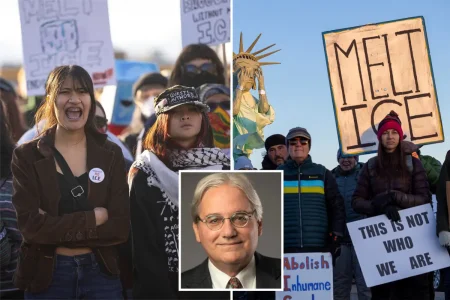Israel’s War in Gaza: The Generation Gap in American Public Opinion
In the months since October 7, 2023, a significant generational divide has emerged in American public opinion regarding Israel’s military campaign in Gaza. While older Americans have largely maintained their traditional support for Israel, younger generations—particularly Gen Z and Millennials—have shown unprecedented levels of criticism toward Israeli actions and sympathy for Palestinians. This shift has alarmed many pro-Israel advocates who fear they may be losing the backing of an entire generation of American voters, with potential long-term implications for U.S.-Israel relations.
The current conflict began with Hamas’s attack on Israel, which claimed 1,200 lives and resulted in over 200 hostages being taken. Israel’s subsequent military response in Gaza has caused widespread destruction and civilian casualties, with Palestinian health authorities reporting over 30,000 deaths. Young Americans have been particularly vocal in their criticism of Israel’s approach, organizing campus protests and social media campaigns that have thrust the issue into mainstream political discourse. Unlike previous Middle East conflicts, the extensive documentation of suffering in Gaza through social media has created a more immediate emotional connection with the Palestinian cause among younger demographics who place high value on human rights and justice.
This generational divide reflects broader differences in how Americans of different ages view international relations and social justice. Polling consistently shows that while Americans over 65 support Israel over Palestinians by margins of 3 to 1 or higher, those under 35 are more likely to sympathize with Palestinians. These younger Americans came of political age after 9/11 and during the Iraq War, with no memory of the Holocaust or Israel’s formative struggles for survival, and instead view Israel through the lens of a powerful state engaged in what many perceive as disproportionate military action against a civilian population. Their political worldview has been shaped by movements like Black Lives Matter and growing skepticism toward traditional power structures, leading them to identify more readily with Palestinians as an oppressed group.
Pro-Israel organizations have recognized this challenge and are actively working to counter what they see as a narrative that unfairly portrays Israel. Traditional advocacy groups are investing in campus outreach, digital campaigns, and efforts to reframe the conversation around Israel’s right to self-defense and the complexities of the conflict. However, they face an uphill battle against the emotional impact of images from Gaza and a generation that approaches the issue with different foundational assumptions about power dynamics in global conflicts. Some Israeli officials and American supporters have expressed frustration that the humanitarian impact of the war has overshadowed what they consider the legitimate security concerns that prompted Israel’s military response.
The political ramifications of this shift are already becoming apparent. President Biden has faced significant pressure from young voters and progressive Democrats to take a firmer stance on Israeli military conduct, creating tensions within the Democratic coalition. Congressional candidates in both parties are finding they must navigate carefully around an issue that once generated bipartisan consensus but now creates political vulnerabilities, particularly among younger voters. In college campuses across America, the conflict has sparked intense debates about free speech, antisemitism, and Islamophobia, further reflecting how the issue has become entangled with domestic political and cultural fault lines.
Looking ahead, both Israeli and American leaders face difficult questions about how to address this generational divide in public opinion. Some analysts suggest that only a credible path toward a two-state solution and significant changes in policies toward Palestinians can rebuild support among younger Americans, while others argue that better communication of Israel’s security challenges is the key. What remains clear is that the emotional and political impact of the Gaza war has created a potentially lasting shift in how a significant portion of future American voters view Israel, with consequences that may reshape U.S. foreign policy and Middle East diplomacy for decades to come. The challenge for Israel’s supporters is no longer just about winning current policy debates but about preventing the erosion of what has historically been one of Israel’s most important strategic assets: American public support.









